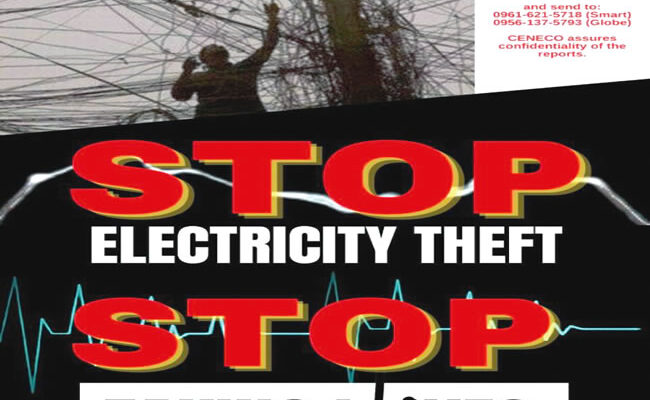
Electricity is an important ingredient to daily living and an essential commodity that both individuals and organisations cannot do without. And it is an essential service that is not free all over the world.
But in spite of the essential nature of power, many people decide to use it free and circumvent the system by bypassing legal means to tap electricity.

But aside from the fact that there are dangers associated with illegal connections also known as power theft and its negative effect on power distribution companies, it is also a criminal offence in Nigeria
Electricity theft is a major source of massive revenue loss to power distribution companies and this increases the debt profile in the Nigerian Electricity Supply Industry (NESI), and affects the whole value chain thereby crippling the nation’s economy.
According to the NERC, over 25% of the total energy wheeled by the Transmission Company of Nigeria (TCN) to electricity Distribution Companies (Discos) is lost to theft and technical inefficiency.
Illegal electricity connections increase the risk of fire hazards, overload the power grid and cause power outages, disrupting services and causing inconveniences for businesses and individuals.
People that still think stealing power is a norm must understand that the law frowns this act and there are laws fighting this. NERC formulated the electricity rheft and other related offences regulations in 2013 to deter electricity theft and the destruction of electricity supply infrastructure.
Section 1 (1) of the regulation provides that any person who willfully and unlawfully taps or makes any connection with overhead, underground or under water lines or cables, or tampers with a meter or uses any other method to interfere with accurate or proper registration, calibration or metering of electric current shall be guilty of an offence under Sections 383 and 400 of the Criminal Code.
Such people shall also be guilty under Sections 286 (2) of the Penal Code and Section 1 of this Regulation, and shall be punishable with terms of imprisonment as applicable, provided under Sections 390 of the Criminal Code, Section 287 of the Penal Code or Section 94 of the EPSR Act.
Section 94 (3) of the Electric Power Sector Reform Act (EPSRA)6 also contains provisions prohibiting electricity theft in whatever manner. It provides that any person who willfully destroys, injures or removes equipment or apparatus of a licensee commits an offence and is liable on conviction to imprisonment for a period of not less than five years and not more than seven years.”
READ ALSO FROM NIGERIAN TRIBUNE







